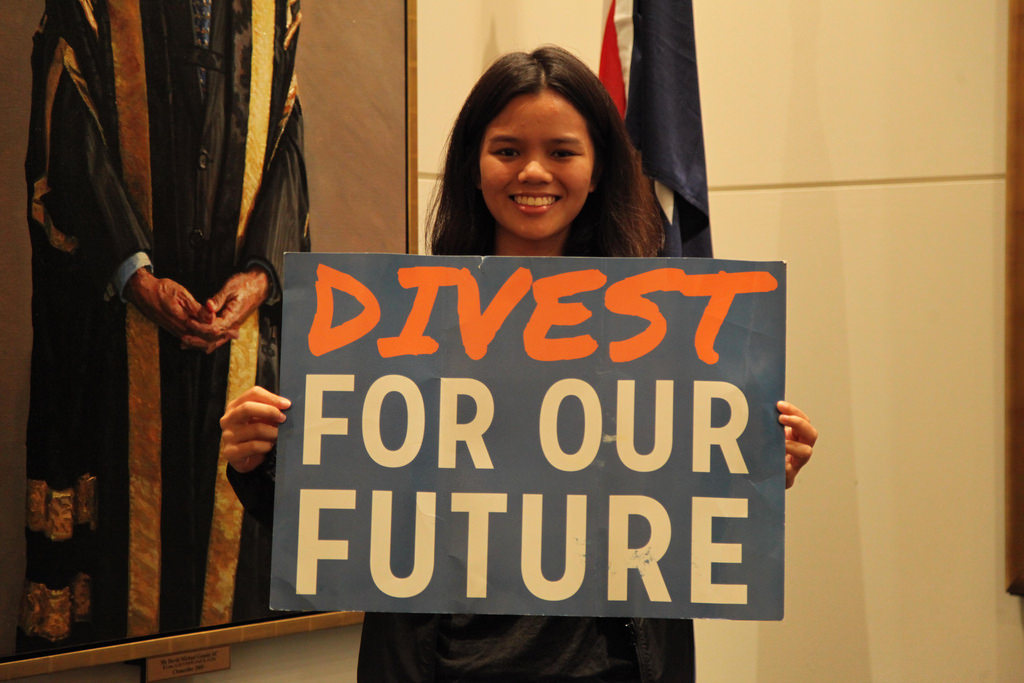Fossil Fuel Divestment and Other Strategies: A Pension Boards Report

The Pension Boards-United Church of Christ, Inc. (PBUCC) is pleased to present this report on its response to the call for urgent action on climate change. PBUCC began its work on climate change 25 years ago as part of a coalition of investors at the Interfaith Center on Corporate Responsibility (ICCR) utilizing direct engagement with publicly traded companies, across all business sectors of the market. As a result of the passing of the 2013 General Synod Resolution Urging Divestment–Along With Other Strategies–From Fossil Fuel Companies to Address Climate Change, and in concert with a growing coalition of investors beyond ICCR and the publication of research and conclusions by the Intergovernmental Panel on Climate Change (IPCC), PBUCC launched a stepped-up campaign on climate in 2014. In recent years, five major steps have been taken:
- PBUCC has taken powerful steps toward a low-carbon future economy with the investment of $200 million in sustainable bonds, including $133.4 million in “green bonds” and $9.2 million “social impact bonds” aimed at the development of alternative energy and increased energy efficiency. This multi-million-dollar investment publicly proclaims that PBUCC has not only supported the principles of the resolution, but actually contributed to the development of a low-carbon future economy — the solution to climate change.
- PBUCC introduced the Northern Trust Global Sustainability Index Fund (GSIF) option for members in the accumulation (pre-retirement) phase of their Annuity Plan accounts. This fund option invests in “best in class” publicly-traded companies, based on MSCI Global Sustainability standards across all asset classes. As this investment grows, opportunities will develop to further customize the fund to make it even more sustainable and climate-sensitive.
- In response to the urgency of climate risks, ICCR members, across all faith bodies, filed a record 104 resolutions addressing climate-related topics. This is 13 more than in the previous year. Sixty-six of these dealt primarily with climate change, while an additional 38 addressed climate change indirectly through lobbying, executive compensation, sustainability, food, water, or the environment. New issues addressed this year were climate change impacts of increased biomass use, DAPL (the Dakota Access Pipeline), and sustainable protein.
- As a result of a strategic planning process and church-wide consultation with a broad range of stakeholders, PBUCC developed the Faith and Finance Initiative to focus on positive ways to initiate dialogue and respond to the UCC’s social justice concerns. A Faith and Finance Advisory Group was formed, whose members include a collegium executive, conference minister, and PBUCC trustees and staff. This group meets regularly to receive counsel and wisdom on matters related to the intersection of faith and finance in the UCC. More information can be found in the Policy on Faith and Finance.
- PBUCC has eliminated its holdings in thermal coal and tar sands, thus reducing the carbon footprint of the portfolio by 60%
Richard Walters is the Director of Corporate Social Responsibility for the Pension Boards-UCC.
Related News
Call to Address Environmental Racism in Alabama Community
For six years, the Shiloh community of Elba, Alabama has faced severe flooding caused by the...
Read MoreA Creation Justice Story: Lake Oswego United Church of Christ
Lake Oswego United Church of Christ (Lake Oswego, Oregon) is proud to add Creation Justice to...
Read MoreCan a Small Church Make a Difference on Environmental Justice? Yes!
American anthropologist Margaret Mead once observed, “Never doubt that a small group of...
Read More


